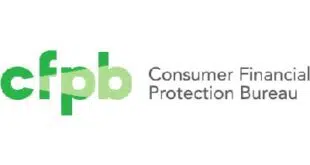Top executives at Mastercard Inc. made it plain early Thursday the card network is determined to develop its account-to-account payment capabilities, while maintaining its distance from the dispute between its rival Visa Inc. and the e-commerce juggernaut Amazon.com Inc. over transaction pricing.
“That’s fundamentally a question for Visa and Amazon,” Mastercard chief executive Michael Miebach told equity analysts during a morning call to discuss his company’s fourth-quarter 2021 results. Amazon last week withdrew a threat to ban Visa cards issued in the United Kingdom because of the acceptance fees it is paying and instead said it is negotiating the matter with the network. “This news does not involve us at all,” Miebach continued. “We have a longstanding relationship with Amazon. There’s nothing for us to worry about from our perspective.”
Miebach underlined a trend both Mastercard and Visa have been following toward open banking and account-to-account transfers as an alternative to card transactions. The trend, he said, is particularly strong in Europe. “We’re deep in this space, we like the direction,” he said. “There’s a significant opportunity for cards in Europe, but we see the long-term opportunity in account-to-account.” Open banking allows financial firms to use an application programming interface to verify consumer accounts at banks to prepare for account-to-account transfers.

Mastercard in September agreed to acquire the European open-banking firm Aiia for undisclosed terms. In 2020, the card giant bought Finicity Corp., a U.S.-based provider, for $825 million. “Mastercard has an unparalleled footprint in key open-banking markets,” Miebach said. “There are cases where cards are an excellent alternative, but a lot of cases where account-to-account and real time make sense. We’re deep in this space, we like the direction.”
Miebach also expressed optimism that the Omicron variant of the Covid-19 virus “may be peaking” in its spread and thus in its impact on Mastercard’s business. The latest variant began impacting Mastercard’s results in December. “There are early signs Omicron will be relatively short-lived,” he said. “There are signs we are moving toward the endemic stage of the disease.”
This may be starting to show up in some of Mastercard’s latest results. Cross-border dollar volume in the first three weeks of January came in at 116% of the same period on 2019, according to figures Mastercard presented during the call. Switched dollar volume on the same comparison stood at fully 149% overall, and 139% in the U.S. market.
For the quarter, Mastercard’s gross dollar volume overall in the U.S. market totaled $652 billion in the fourth quarter, up 23% over the same period in 2020. Globally, volume was up by the same percentage, to $2.1 trillion. Mastercard and Maestro cards in circulation worldwide came to just under 3 billion, up 9% year-over-year.
The company recorded $5.2 billion in net revenue for the quarter, up 28% on a currency-neutral basis.





